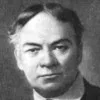You know the simple psychological truth, Charles; we’re always accusing others of our own flaws.
Alfred Bester (1913-1987) American author, screenwriter, editor
“Galatea Galante,” Omni (1979-04-07)
(Source)
Quotations about:
flaws
Note not all quotations have been tagged, so Search may find additional quotes on this topic.
When the final records shall be made clear, I think we shall be greatly amazed to see how alike in their frailties were men and women.
Minna Antrim (1861-1950) American epigrammatist, writer
Naked Truth and Veiled Allusions (1902)
(Source)
CAMILLO:My gracious lord,
I may be negligent, foolish, and fearful.
In every one of these no man is free,
But that his negligence, his folly, fear,
Among the infinite doings of the world,
Sometime puts forth. In your affairs, my lord,
If ever I were willful-negligent,
It was my folly; if industriously
I played the fool, it was my negligence,
Not weighing well the end; if ever fearful
To do a thing where I the issue doubted,
Whereof the execution did cry out
Against the non-performance, ’twas a fear
Which oft infects the wisest. These, my lord,
Are such allowed infirmities that honesty
Is never free of.William Shakespeare (1564-1616) English dramatist and poet
Winter’s Tale, Act 1, sc. 2, l. 310ff (1.2.310-325) (1611)
(Source)
EDGAR: The gods are just, and of our pleasant vices
Make instruments to plague us.William Shakespeare (1564-1616) English dramatist and poet
King Lear, Act 5, sc. 3, l. 204ff (5.3.204-205) (1606)
(Source)
This is the tax a man must pay to his virtues, — they hold up a torch to his vices, and render those frailties notorious in him which would have passed without observation in another.
Charles Caleb "C. C." Colton (1780-1832) English cleric, writer, aphorist
Lacon: Or, Many Things in Few Words, Vol. 1, § 237 (1820)
(Source)
I haven’t a particle of confidence in a man who has no redeeming petty vices whatsoever.
Mark Twain (1835-1910) American writer [pseud. of Samuel Clemens]
“Answers to Correspondents,” The Californian (17 Jun 1865)
(Source)
Reprinted in The Celebrated Jumping Frog of Calaveras County, and Other Sketches (1867).
Many owe their greatness to their enemies. Flattery is fiercer than hatred, for hatred corrects the faults flattery had disguised. The prudent man makes a mirror out of the evil eye of others; it is more truthful than that of affection, and helps him reduce his defects or emend them.
[Fabricáronles a muchos su grandeza sus malévolos. Más fiera es la lisonja que el odio, pues remedia este eficazmente las tachas que aquella disimula. Hace el cuerdo espejo de la ojeriza, más fiel que el de la afición, y previene a la detracción los defectos, o los enmienda.]
Baltasar Gracián y Morales (1601-1658) Spanish Jesuit priest, writer, philosopher
The Art of Worldly Wisdom [Oráculo Manual y Arte de Prudencia], § 84 (1647) [tr. Maurer (1992)]
(Source)
(Source (Spanish)). Alternate translations:Many owe their fortune to their enviers. Flattery is more cruel than ha∣tred, in as much as it palliates the faults, which the other makes us remedy. The wise man makes the hatred of his Enviers his looking-glass, wherein he sees himself far better than in that of kindness.
[Flesher ed. (1685)]Many have had their greatness made for them by their enemies. Flattery is more dangerous than hatred, because it covers the stains which the other causes to be wiped out. The wise will turn ill-will into a mirror more faithful than that of kindness, and remove or improve the faults referred to.
[tr. Jacobs (1892)]Many have been made through the greatness of their enemies. Far more to be feared is flattery, than hate, since this exposes the flaws, which flattery would conceal. The man who knows makes a mirror of spite, more faithful than the mirror of affection, and envisages his shortcomings, to correct them.
[tr. Fischer (1937)]
Bragging is not merely designed to impress. Bragging is designed to produce envy and assert superiority. It is, therefore, an act of hostility. Bragging is also a transparent ploy. It reveals your lack of self-confidence. “I am not enough,” you feel. So you resort to showering me with your “achievements,” in order to mask your perceived deficiencies.
Aaron Hass (contemp.) American clinical psychiatrist, academic, author
Doing the Right Thing: Cultivating Your Moral Intelligence, Sec. 1, ch. 7 “Self-Control” (1998)
(Source)
Every now and then, in the course of great events, the elements of tradition and innovation ally themselves and each one’s weakness supplements the other and together they achieve the perfect debacle.
Murray Kempton (1917-1997) American journalist.
“The Genius of Mussolini,” New York Review of Books (7 Oct 1982)
(Source)
Reprinted in Rebellions, Perversities, and Main Events (1994).
A virtuous, ordinary life, striving for wisdom but never far from folly, is achievement enough.
Alain de Botton (b. 1969) Swiss-British author
The Consolations of Philosophy, ch. 4 “Consolation for Inadequacy” (2000)
(Source)
Summarizing Montaigne.
Every man of action has a strong dose of egotism, pride, hardness, and cunning. But all those things will be forgiven him, indeed, they will be regarded as high qualities, if he can make of them the means to achieve great ends.
It is in our faults and failings, not in our virtues, that we touch one another and find sympathy. We differ widely enough in our nobler qualities. It is in our follies that we are at one.
Jerome K. Jerome (1859-1927) English writer, humorist [Jerome Klapka Jerome]
Idle Thoughts of an Idle Fellow, “On Vanity and Vanities” (1886)
(Source)
Strive to be patient; bear with the faults and frailties of others, for you, too, have many faults which others have to bear. If you cannot mould yourself as you would wish, how can you expect other people to be entirely to your liking?
[Stude patiens esse in tolerando aliorum defectus, et qualescumque infirmitates, quia et tu multa habes, quæ ab aliis oportet tolerari. Si non potes te talem facere qualem vis, quomodo poteris alium habere ad beneplacitum tuum?]
Thomas à Kempis (c. 1380-1471) German-Dutch priest, author
The Imitation of Christ [De Imitatione Christi], Book 1, ch. 16, v. 2 (1.16.2) (c. 1418-27) [tr. Sherley-Price (1952)]
(Source)
(Source (Latin)). Alternate translations:Study always that thou mayest be patient in suffering of other men’s defaults, for thou hast many things in thee that others do suffer of thee: and if thou canst not make thyself to be as thou wouldst, how mayest thou then look to have another to be ordered in all things after thy will?
[tr. Whitford/Raynal (1530/1871)]Study always to be patient in bearing other men's defects, for you have many in yourself that others suffer from you, and if you cannot make yourself be as you would, how may you then look to have another regulated in all things to suit your will?
[tr. Whitford/Gardiner (1530/1955)]Endeavour thy selfe patiently to bear with any faults and infirmities of others, for that thou thy selfe hast many things that must be borne withall by others. If thou canst not make thy selfe such a one as thou wouldst be, how canst thou expect to have another to thy liking in all things?
[tr. Page (1639), 1.16.6-7]Remember, that You also have many Failings of your own, by which the Patience of other People will have its turn of being exercised. And if you do (as certainly you cannot but) see this, think how unreasonable it is, to expect you should make others in all particulars, what you would have them to be; when you cannot so much as make your self, what you are sensible you ought to be.
[tr. Stanhope (1696; 1706 ed.)]Endeavor, to be always patient of the faults and imperfections of others; for thou haft many faults and imperfections of thy own, that require a reciprocation of forbearance. If thou art not able to make thyself that which thou wishest to be, how canst thou expect to mould another in conformity to thy will?
[tr. Payne (1803), 1.16.3]Endeavour to be patient in bearing with the defects and infirmities of others, of what sort soever they be; for that thyself also hast many [failings] which must be borne with by others. If thou canst not make thyself such an one as thou wouldest, how canst thou expect to have another in all things to thy liking?
[ed. Parker (1841)]Endeavour to be always patient of the faults and imperfections of others, whatever they may be; for thou hast many faults and imperfection of thy own, that require forbearance from others. If thou art not able to make thyself that which thou wishest to be, how canst thou expect to mould another in conformity to thy will?
[tr. Dibdin (1851)]Endeavour to be patient in bearing with defects and infirmities in others, of what kind soever; because thou also hast many things which others must bear with. If thou canst not make thyself such as thou wouldst, how canst thou expect to have another according to thy liking?
[ed. Bagster (1860)]Endeavour to be patient in bearing with other men’s faults and infirmities whatsoever they be, for thou thyself also hast many things which have need to be borne with by others. If thou canst not make thine own self what thou desireth, how shalt thou be able to fashion another to thine own liking.
[tr. Benham (1874)]Endeavour to be patient in bearing with the defects and infirmities of others, of what sort soever they be; for that thyself also hast many failings which must be borne with by others. If thou canst not make thyself such an one as thou wouldst, how canst thou expect to have another in all things to thy liking?
[tr. Anon. (1901)]Try to bear patiently with the defects and infirmities of others, whatever they may be, because you also have many a fault which others must endure. If you cannot make yourself what you would wish to be, how can you bend others to your will?
[tr. Croft/Bolton (1940)]Try to be patient in bearing with others’ failings and all kinds of weaknesses, for you too have many which must be put up with by others. If you cannot mould yourself exactly as you would, how can you get another to be satisfying to you?
[tr. Daplyn (1952)]Yes, you do well to cultivate patience in putting up with the shortcomings, the various disabilities of other people; only think how much they have to put up with in you! When you make such a failure of organizing your own life, how can you expect everybody else to come up to your own standards?
[tr. Knox-Oakley (1959)]Try to be patient in bearing with the failings and weaknesses of other people, whatever they may be. You too have many faults, which others have to endure. If you cannot make yourself the kind of person you wish, how can you expect to have someone else to your liking?
[tr. Knott (1962)]Seek always to be tolerant of the shortcomings and failings of others. They also have much to tolerate in you. If you are unable to mould yourself as you wish, how can you expect others to conform to your liking?
[tr. Rooney (1979)]Take pains to be patient in bearing all the faults and weaknesses of others, for you too have many flaws that others must put up with. If you cannot make yourself as you would like to be, how can you expect to have another person entirely to your liking?
[tr. Creasy (1989)]
For it is the characteristic of folly, to have eyes for the faults of others, and blindness for its own.
[Est enim proprium stultitiae aliorum vitia cernere, oblivisci suorum.]
Marcus Tullius Cicero (106-43 BC) Roman orator, statesman, philosopher
Tusculan Disputations [Tusculanae Disputationes], Book 3, ch. 30 (3.30) / sec. 73 (45 BC) [tr. Otis (1839)]
(Source)
(Source (Latin)). Alternate translations:For it is the property of Folly, to look upon other mens Failings, and to forget their own.
[tr. Wase (1643)]For it is the peculiar characteristic of folly to discover the vices of others, forgetting its own.
[tr. Main (1824)]For it is the peculiar characteristic of folly to perceive the vices of others, but to forget its own.
[tr. Yonge (1853)]It is the peculiar quality of a fool to perceive the faults of others and to forget his own.
[Source (1882)]It is the property of folly to see the faults of others, to forget its own.
[tr. Peabody (1886)]This is just how foolish people behave: they observe the faults of others and forget their own.
[tr. Graver (2002)]It is a trait of fools to perceive the faults of others but not their own.
Be at War with your Vices, at Peace with your Neighbours, and let every New-Year find you a better Man.
Benjamin Franklin (1706-1790) American statesman, scientist, philosopher, aphorist
Poor Richard’s Almanack (1755)
More information on this quotation here.




















